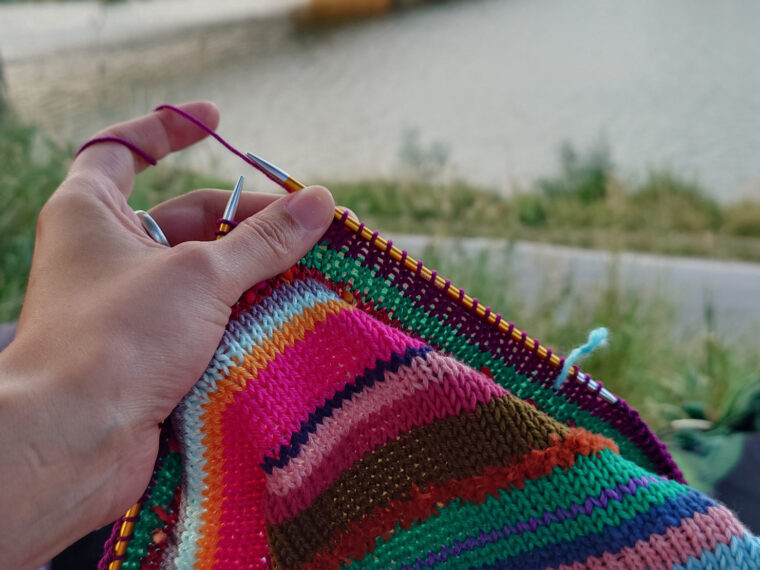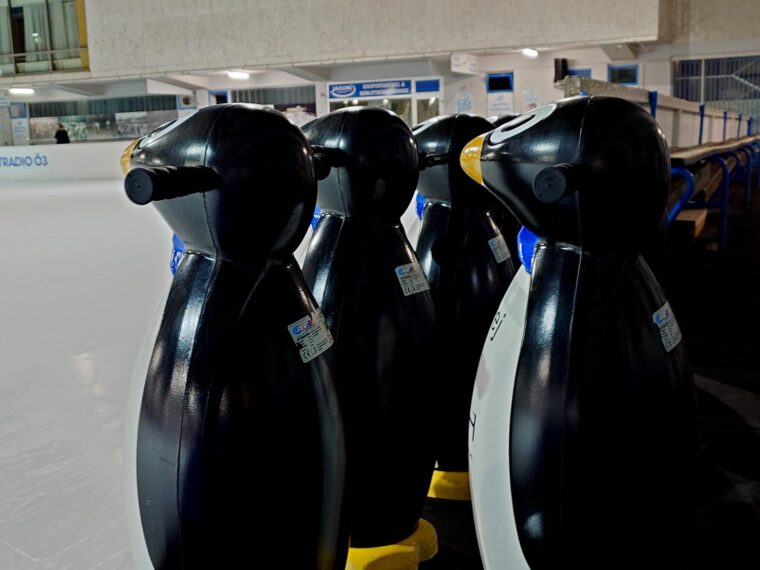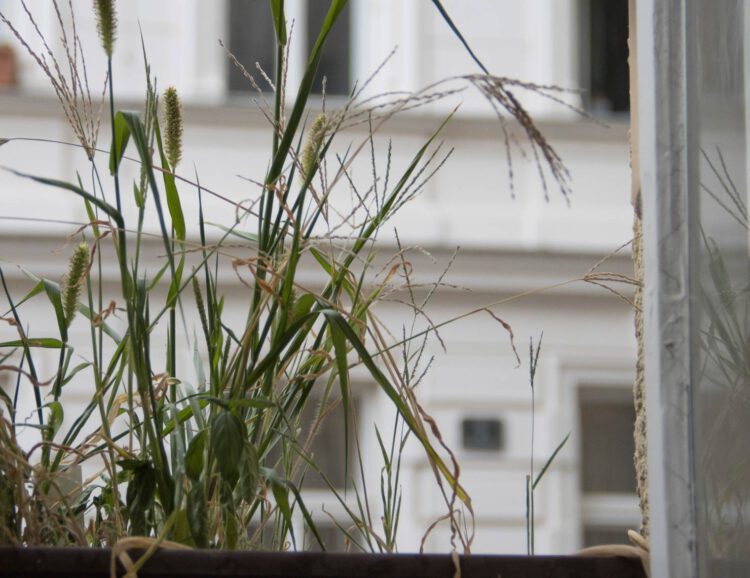
…mit wenig Gebackenem, zwei Restaurants (Meinklang und Pizzeria il Mercato), Prater, Popfest, Podcast-Literatur – und wie immer, den besten Links der letzten Wochen.
Seit dem letzten Zuckersüß habe ich Hafer-Walnuss-Marillen-Eis-Sandwiches (bald im Blog!), einen Alles-was-der-Vorrat-hergibt-Pie (mit Marillen, Pfirsichen, Äpfeln, TK-Beeren und Limettensaft) angelehnt an den Alles-was-der-Garten-hergibt-Pie und Pfannkuchen gebacken.
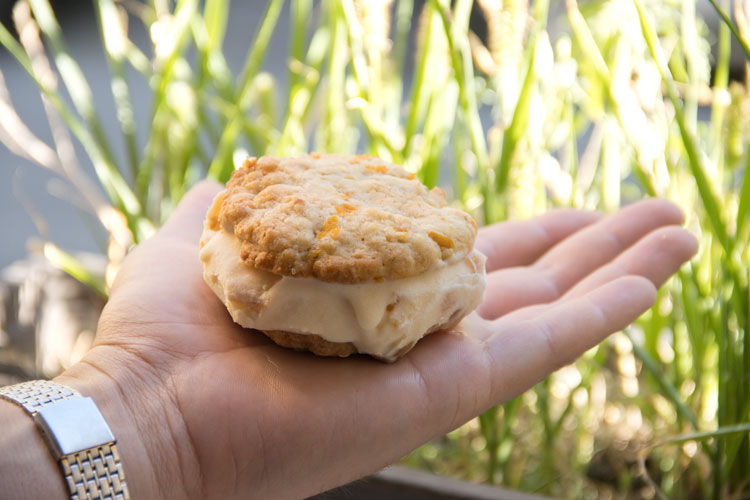
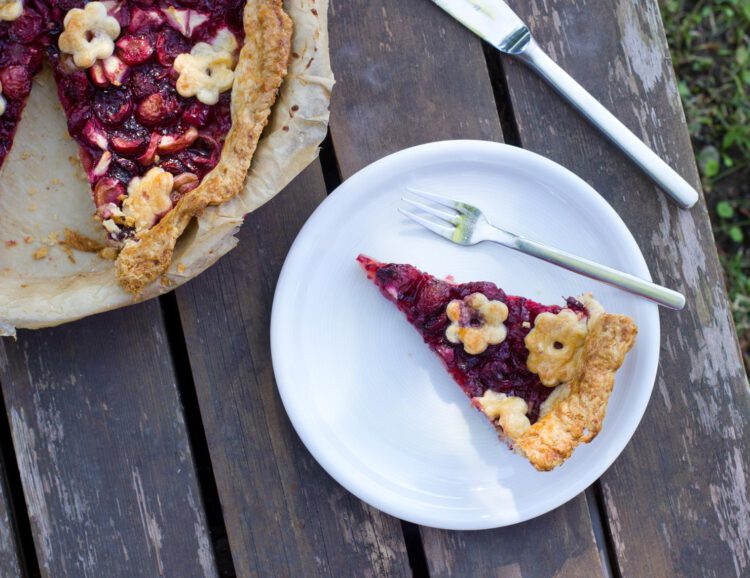
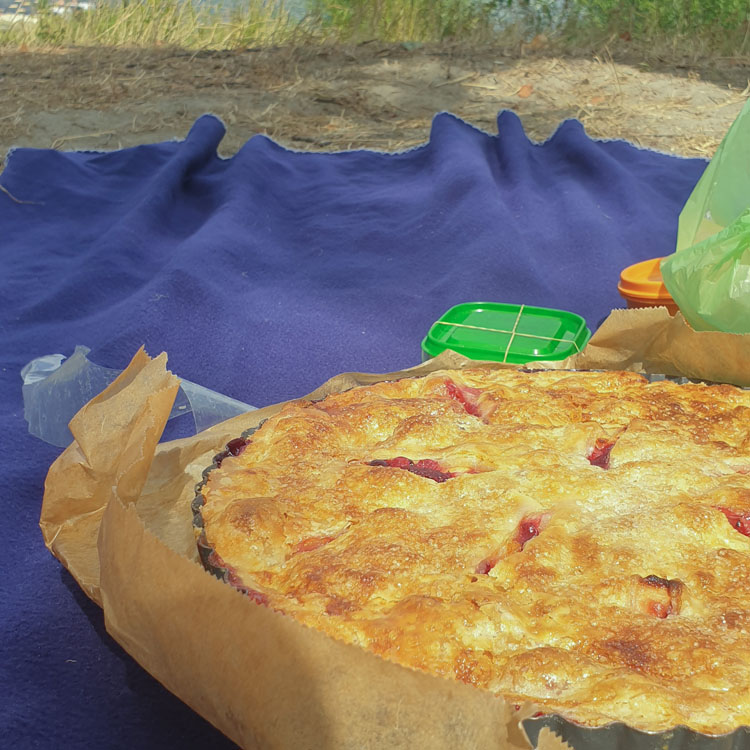
Gegessen
Pommes beim Baden, ein Kohlrabi-Carpaccio mit Holleressig, cremigem Topfen und hauchdünnen Zitronenscheiben im Meinkang (14€), eine Pizza Margherita della Casa mit gelber Tomatensauce, Mozarella und ein bisschen zu viel Grana für meinen Geschmack (12€?) in der Pizzeria il Mercato am Vorgartenmarkt.
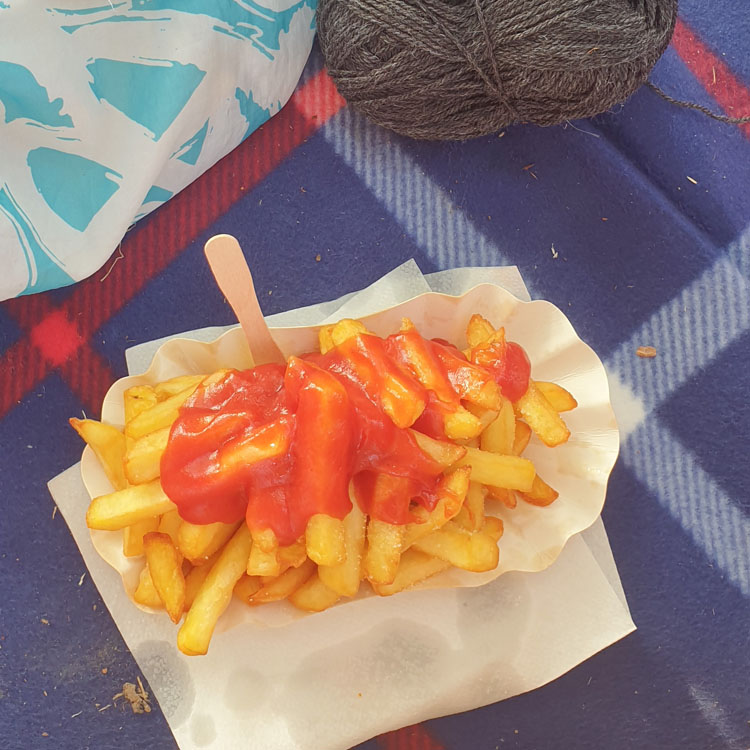
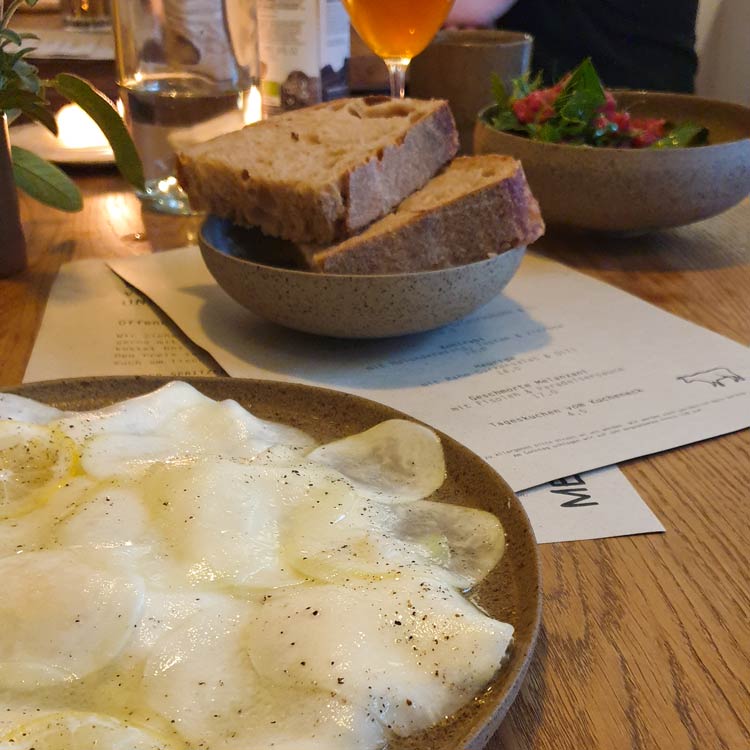
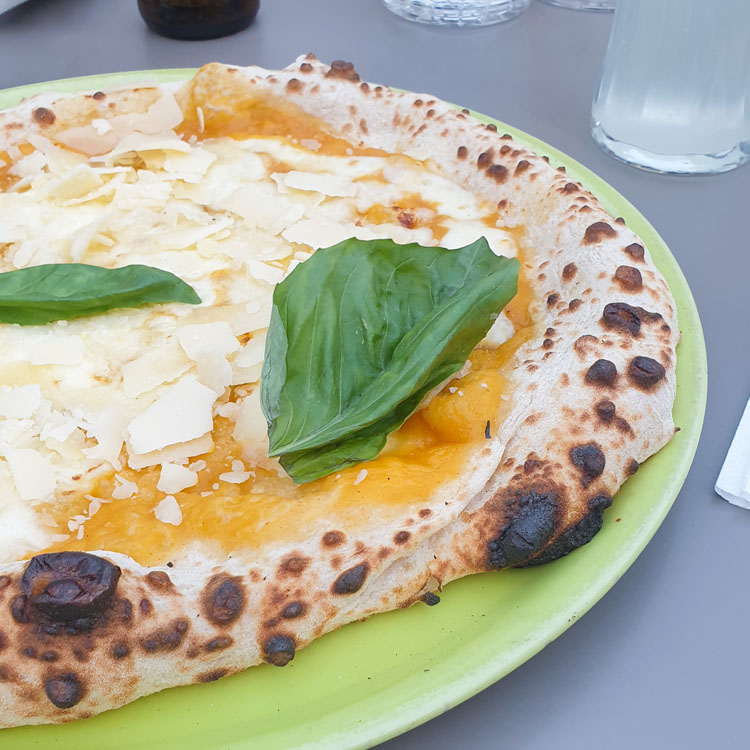
Pancakes mit Jungzwiebeln, Sesam und Chiliöl, Kokosreis mit einem Tofu-Ei-Fisolen Stir-Fry in Pad-Thai-Style Tamarindensauce mit Erdnüssen, Minze und Kokosreis, absurd teure (5,90€) Pommes und ein picksüßes Banh Bao mit Kokos-Bohnenfüllung beim Popfest, und Tandoori-Brot mit meinem Lieblingsbrotaufstrich (Frischkäse, püriert mit getrockneten Feigen, Jungzwiebeln und ein bisschen Salz und Pfeffer) zum Picknick.
Getrunken
Ein Glas roten, sehr fruchtigen Naturwein im Meinklang (natürlich wieder alle Details vergessen), einen Espresso Martini im Ludwig & Adele, und viele Gläser des gegenwärtigen Go-To-Erfrischungsgetränks meines Mitbewohners (Minze mit Zitronenfruchtfleisch und Wasser pürieren, großzügig Eis reinleeren).
Gesehen
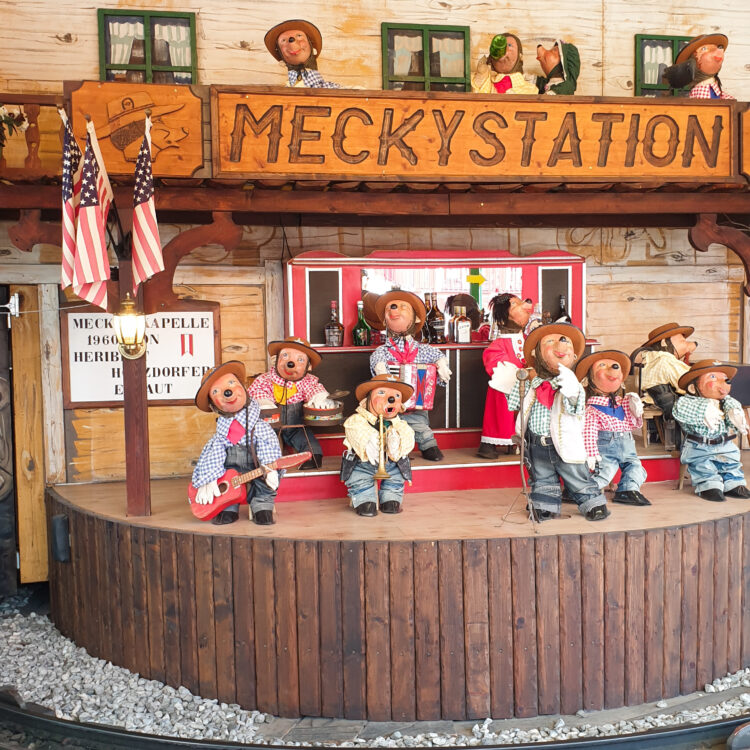
Lustige Retro-Attraktionen beim OH WOW-Sommerfest im Prater, darunter die Mecky Bahn mit creepy tanzenden Igelfiguren von 1961 und einem Ben-Hur-Diorama, ein „Spiegelkabinett“, das uns alle dauernd zum Grinsen gebracht hat, und der Toboggan, ein hölzernen Rutschturm, den man zu Fuß erklimmt und dann mit Teppich als Unterlage hinunterrutscht. Dabei gelernt: Toboggan ist das französische und kroatische Wort für Rutsche, es geht vermutlich auf das Algoquin-Wort für Schlitten zurück (s. Wiktionary). Buntspecht beim Popfest (dabei diesen Song liebgewonnen).
Gelesen
Das letzte Kapitel von Schwein und Zeit von Fahim Amir, ich werde (hoffentlich) bald einen eigenen Post dazu tippen.
Sehr viel Zeug für meine Masterarbeit, vorrangig frühe wissenschaftliche Literatur über Podcasts (bis 2008). Und: ich bin wirklich schockiert, was uns jetzt, in der dritten (?) Podcastwelle als *neu* verkauft wird. Ein Beispiel: Schon 2008 schrieben Sterne et al., dass Videopodcasting immer populärer wird. Apple, das kurzzeitig versucht hatte, den Begriff Podcasting zu trademarken (hat obvs nicht funktioniert) schreiben die Autor_innen übrigens weniger das „pioneering“ von Podcasts zu, und mehr das „mainstreaming“. Sie fechten außerdem mit Verweis auf danah boyd die Erzählung vom Podcast als demokratisches/demokratisierendes Medium an, denn es handelt sich ja immer noch um eine Austrahlungsform, die von wenigen an viele geht – allein die Lizenzierung von einer staatlichen Stelle, die es eben nicht braucht, unterscheidet es vom Broadcasting.
Wie früh die Kommerzialisierung des Podcasting startete, zeigt Berry (2006), der aufzählt, was Virgin Radio an Vorteilen sah, als der Sender 2005 begannen, sein Frühstücksprogramm per Podcast auszuliefern: ein aufmerksameres Publikum und ein direkterer Weg ins Ohr für Werbekund_innen. Virgin Atlantic veröffentlichte auch schon Mitte der 2000er einen Podcast-Guide zu den Städten, die die Airline anflog – branded podcasts sind damit auch weit älter, als ich bisher angenommen hatte. Und Bezahlpodcasts gabs auch schon ewig: die „Ricky Gervais Show“ beim Guardian kostete ab der zweiten Staffel knappe zwei Pfund pro Folge.
Wers genau nachlesen will:
Berry, R. (2006). Will the iPod Kill the Radio Star? Profiling Podcasting as Radio. Convergence: The International Journal of Research into New Media Technologies, 12(2), 143–162. https://doi.org/10.1177/1354856506066522
Sterne, J., Morris, J., Baker, M. B., & Moscote Freire, A. (2008). The politics of podcasting. The Fibreculture Journal, 13. https://thirteen.fibreculturejournal.org/fcj-087-the-politics-of-podcasting/
Veröffentlicht
Im Blog: Pickled Wassermelonenschale
Anderswo: Folge 9 von „Irgendwas mit EU“ an der ich für OH WOW mitgewirkt habe, ist am Donnerstag online gegangen, es geht um Fast Fashion und die EU-Textilstrategie, Nunu Kaller, Anna Leitner (Global2000) und die EU-Abgeordnete Delara Burghardt (SPD) erzählen spannendes: Grün, grün, grün sind alle meine Kleider.
Außerdem bin ich durch Instagram zufällig draufgekommen, dass gestern die Ö1 Diagonal-Sendung zur Konditorei (hier noch bis Samstag nachzuhören) von vergangenem Herbst wiederholt wurde, für die ich einen Beitrag über „Die Kulturgeschichte der Konditorei“ gestaltet hatte. Das ist meines Wissens das erste Mal seit meinem nicht ganz unauffälligen Abgang vom Sender, das etwas von mir wiederholt wurde.
Hier folgen meine liebsten Links der letzten Woche:
Rezepte
Bikini Martini Rum and Vodka Cocktail Recipe | PUNCH
Vom Bikini Martini hab ich noch nie gehört, gut dass PUNCH auch seine Geschichte aufgeschrieben hat.
flaky chocolate cake – smitten kitchen
Ich habe schon eeeeewig keinen Schokokuchen mehr gemacht, warum eigentlich?
KP+: Fig Leaf Milk Jam – by Nicola Lamb – Kitchen Projects (€)
Wo kann ich bloß Feigenblätter auftreiben?
Blueberry Breakfast Cake | Buttermilk by Sam
Mehr Kuchen zum Frühstück!
Texte
Ein Gang mit … Martin Ho – profil.at
Ich liebe diese Kolumne.
Ho trägt Sonnenbrille, eine gute Frisur und ein offenes Hemd, an der linken Hand eine Uhr, die leider so gut unter der Manschette versteckt ist, dass man nicht erkennen kann, wie teuer sie ist, aber teuer ist sie definitiv. Er wirkt freundlich, aber bestimmt, und dass er anders als ich für dieses Gespräch einen ganz konkreten Plan hat, erkenne ich schon allein daran, dass auch sein PR-Berater am Tisch hockt. Ohne Zögern bestellt Ho für alle: Sashimi, Hongkong Prawns, ein leicht gewöhnungsbedürftiges Ceviche und etwas, das die Küche „Popcorn Chicken“ nennt und das auch genau so schmeckt. Dazu kommt eine Flasche Grüner Veltliner von FX Pichler. Martin Ho hatte darauf bestanden. Wer mittags nicht trinkt, ist seiner Meinung nach ein Eumel, und er ist ganz sicher keiner.
Von Robbie und Harry – fm4.orf.at
Über männliche Popstars 2023.
Es ist gut vorstellbar, dass Robbie Williams in bestimmten Lebensphasen ein kleines bissi Arschloch war („I had more blondes than brunettes“). Es ist nicht vorstellbar, dass Harry Styles genug Persönlichkeit hat, ein Arschloch zu sein. Das soll nichts rechtfertigen, es ist nur eine Beobachtung. Vor allem aber ist Harry Styles ein über die Schmerzgrenze hinaus schmähbefreiter Bühnenmensch, da bewegt sich nichts in Herz oder Gesicht, ab und zu ist da zwar schon Freude am Da-oben-Stehen, aber auch die ist am Ende der „Love“-Tour im Wiener Ernst-Happel-Stadion nur mehr sanft spürbar. It’s a job.
Mounjaro and Me – The Cut
Ein persönlicher Take zum comeback des Abnehmwahns und neuen medikamentösen Abnehm-Hilfen.
In the last few years, I found respite in the body-positivity movement, which posits that none of us deserve to be humiliated or discriminated against because of our sizes. And I’ve worked hard to love myself at my size: I refuse to try a fad diet, refuse to follow extreme exercise regimens, refuse to do anything that I perceive as giving in to the pressure to constantly obsess about my weight and hate my body.
Around the same time that I slid across the curvy divide and into fat-landia, my father, who had struggled with obesity-related diabetes and heart disease for most of his adult life, died of complications from his diabetes and the resulting dialysis. It was not an easy death — and it was made worse by my own recognition that, on some level, I had believed he could’ve stayed with us had he taken better care of his body in exactly the ways I lately wasn’t taking care of my own.
How to be blind – The New Yorker
Wie man sich als blinder Mensch in einer für sehende gemachten Welt bewegen lernt.
Blind travel requires you to think like an urban planner. Charles had taught me to swing my cane wide in search of a bus pole. On wide downtown blocks, bus stops are curbside, but on narrower streets they’re set back behind the grass line. Halfway up one block, I connected with a metal bench. I lifted my cane and hit a low roof. There was no pole, but what else could this be? When the bus arrived, I climbed aboard and let fly my official question: “How do I get to Littleton/Downtown station?” The driver told me to go to the end of the line, then take the light-rail. When we got to the rail station, I crossed the tracks, and boarded a train. In Littleton, I almost stepped on a person passed out on the ground. I walked back to the center, hearing the familiar sound of tapping canes as I arrived. An announcement went out that I had returned, and cheers rose up from the classrooms.
‘It’s exactly as they’d have done it in the 1910s’: how Barbenheimer is leading the anti-CGI backlash – The Guardian (via Good Internet)
Mehr in-camera-Tricks und Miniaturen!
Film historian Pamela Hutchinson says that this wave of films arrives after a period “where they said: ‘CGI, you can do everything [with it,] and endless possibilities await you.’ Now we know that can be done, and we’re a bit distrustful of it, we’re a bit over it. Because we now know that everything can be done on the computer, when you see the Barbieland set, it’s refreshing to see something that someone has built with care and attention.”
Opinion | The ‘Barbie’ Movie Explains Why We Still Care About Barbie – The New York Times
Andi Zeisler (deren Buch ich offenbar vor 5 Jahren angelesen habe?) mit einem differenzierten Blick auf das Phänomen Barbie.
I didn’t realize the film’s narrative would essentially serve as a Mattel redemption arc. When I saw the finished film, I realized that in the course of my life I had gone from a guileless Barbie consumer to an enlightened Barbie renouncer to an unwitting Barbie P.R. booster.
The Fibreculture Journal : 13 | FCJ-087 The Politics of Podcasting
Das ist der oben erwähnte Text von Sterne et al.
Searls’ greater contribution to podcasting discourse, however, was his emphasis upon framing the term within a new-versus-old dichotomy of broadcasting, explicitly linking the technology’s supposed revolutionary qualities to its internet-based distribution and the convenience facilitated by RSS enclosure. The medium-specific nature of the discussion perhaps explains why there is rarely any widespread consideration of the fundamental difference between the content of podcasts and more traditional forms such as radio documentary. In other words, the development of the term ‘podcasting’ followed the pattern set out in Richard Barbrook and Andy Cameron’s essay ‘The Californian Ideology,’ (1995) where new information technologies are uncritically championed as embodying a Jeffersonian democratic ideal.
On successor states and websites – Going Medieval (via Robin Rendle)
Ich weiß nix über das frühe Mittelalter, diesen Vergleich zwischen dem bröselnden römischen Reich und Twitter fand ich jedenfalls interessant.
Imagine for the purposes of this little experiment that Rome in this case is everyone’s least favourite website – Twitter. Twitter has been through more than a few iterations in its lifetime. It was born as a theoretical micro-blogging site, and became eventually the place where people who write stuff hang out. It didn’t have the numbers of Facebook, but basically anyone who wrote for a living was over there, mostly because there is something wrong with us. This included a lot of journalists, who did a good line in convincing everyone that it was OK to hang out on there as you could take the national temperature or something – like an on-going vox pop. As a result of this, it then began to pick up a lot of people who had something to promote. This was, of course, more writers, but also people who had podcasts, or wanted to be personal trainers, or influencers, things of this nature. It also included politicians for the same theoretical vox pop reasons. So there everyone was, hanging out in a particular environment.
Now there were problems of course. Rather too many nazis were around the joint (in that there were any at all). Dudes would just show you their junk sometimes. People got in fights with each other because someone would tweet that they liked pizza and then someone would demand to know why they hated pasta. Stuff like that. It was however, a workable and recognisable whole, much as Rome was.
Three Explanations for Elon Musk’s X – The Atlantic (via Good Internet)
Charlie Warzel über die Umbenennung von Twitter (die fast an mir vorbeigegangen wäre, weil ich die App wahrscheinlich keine zweimal wöchentlich mehr öffne – Sucht schnell überwunden!).
In this sense, X is less a brilliant vision than it is an act of desperation. Musk is behaving much like a start-up with an unsustainable burn rate—he needs a cash injection. And in order to raise some reputational capital, he needs a good idea, one that seems plausible and scalable. X checks all the boxes for such an idea. Its ambitions are so vague as to be boundless, which signals perpetual growth and moneymaking—it is, quite literally, the everything app. In this way, X is an inkblot test for anyone who still wants to believe in Musk: Squint the right way and X takes on the form of whatever hopes and dreams that person has for the future of the internet. This is the fleeting genius of pseudoware: The best feature of marketing an app for everything is that you can get away with saying mostly nothing.
Cities Use Spikes to Keep Birds Away. Birds Are Using Them in Nests – Scientific American
„Natur“ in dem Sinne gibts nicht.
Birds around the world use human materials in their nests in various ways, says Juan Diego Ibáñez Álamo, an urban ecologist at the University of Granada in Spain, who wasn’t involved in the new research. The use of anti-bird spikes is just an unusually ironic example of the behavior, Hiemstra says.
In a review published earlier this month, Ibáñez Álamo and his colleagues found that while the most common human material found in birds’ nests is plastic, these structures also incorporate things such as glass, cloth and even cigarette butts. And anthropogenic materials are found even in nests in areas people might consider pristine. “It’s not really related to more polluted areas,” Ibáñez Álamo says. “It’s not something that is restricted to cities. It’s everywhere.”
In Northwest Argentina, a Spoken Legacy Challenges History Books – Life & Thyme
Eine „definitive“ „authentische“ Länderküche gibt es auch nicht, Beispiel 18271817. Superspannend, wie levantinische Einflüsse zweimal (einmal über spanische Kolonialherren, dann über Einwanderer aus Syrien und Libanon) in die argentinische Küchentradition drängten.
The region has some of the nation’s oldest settlements and a palate defined by criollo cuisine—a mixture of Indigenous, African and Spanish dishes that glued themselves together during colonization. Yet as I travel across the region, people keep affirming that Arab immigration from Lebanon and Syria left a mark on criollo cuisine too, even if I can’t find written evidence to back anyone’s claims. In towns and provincial capitals, I scour shops and libraries for old cookbooks in search of a noticeable change in the use of spices after the arrival of the Syro-Lebanese and come up with nothing. It’s all folklore.
Audio/Video
Switched on Pop: Barbie and the plasticity of pop
Ich hab den Film immer noch nicht gesehen, aber zumindest eine Analyse des Soundtracks gehört. Ihr Fazit: Aqua’s Barbie Girl gewinnt.
Why Barbie’s First Dreamhouse Didn’t Have A Kitchen « Sporkful
Mehr Barbiecontent. Und ein Beispiel für eine Lokalkritik in Podcastform: Host Dan Pashman trifft sich nämlich mit Helen Rosner vom New Yorker im „Malibu Barbie Café“, wo die Klangkulisse nicht so podcasttauglich ist, weshalb er wohl nur einzelne Töne daraus verwendet.
The Fever Tree Hunt – ABC Radio National
Stuff the British Stole habe ich schon mal empfohlen (s. Zuckersüß 413), in dieser Folge geht es um den Chinarindenbaum und wie sich die Kolonialmächte darum rissen.
ITB025 Ortswechsel
Mein liebster deutschsprachiger Sachbuchpodcast ist zurück – nach einer dreijährigen Pause.
Fieh – Inbox
Neulich beim Picknicken ~shazamed~.
Sonst so
Implementing Wordle in the Firefox address bar – eieio.games
Jemand hat das Wortratespiel für die Browseradresszeile nachgebaut… Auf der Webseite liegt es in der Kategorie „nonsense“, was mich sehr amüsiert hat, denn solche Spielereien bookmarke seit Jahren ich unter dem Schlagwort „Internetsinnlosigkeit“.
Acquired Tastes. Stories about the Origins of Modern Food – MIT Press
Klingt interessant!
Backkatalog:



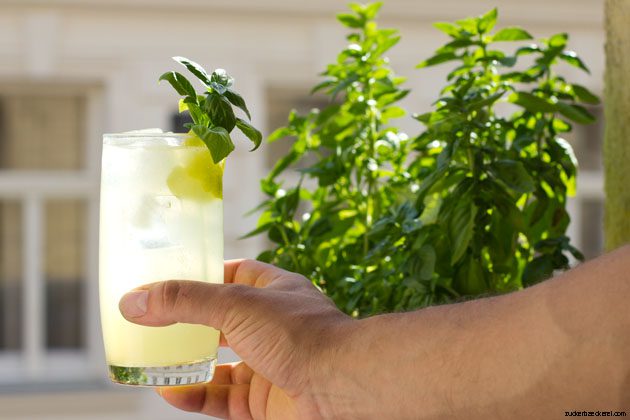
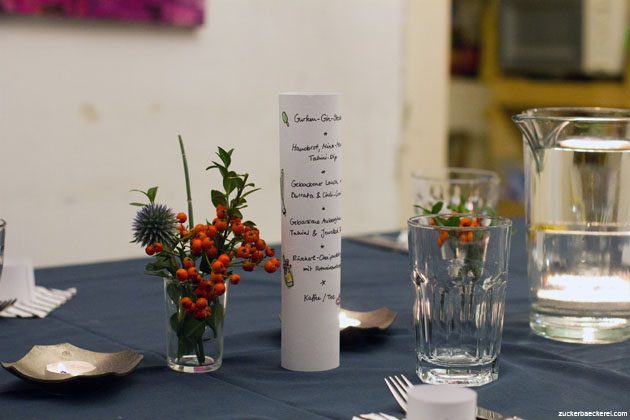
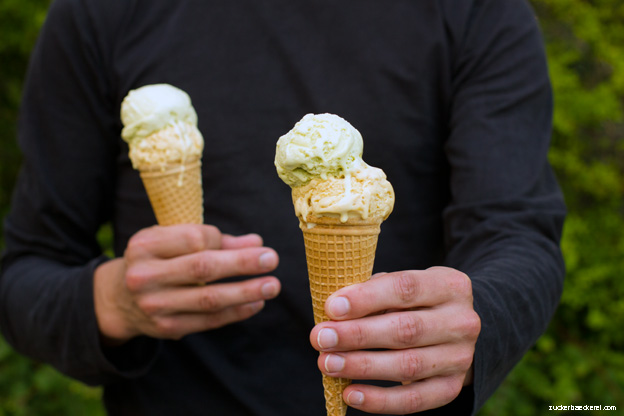
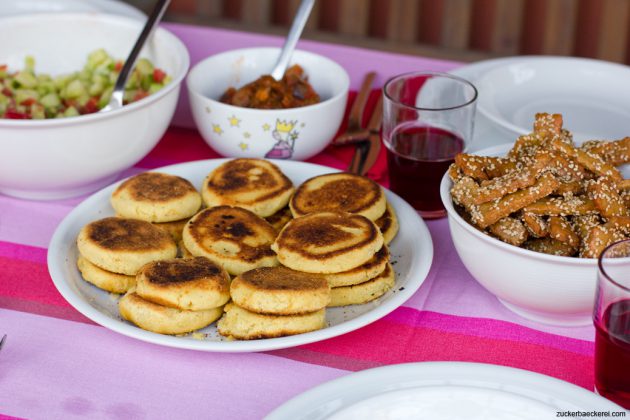

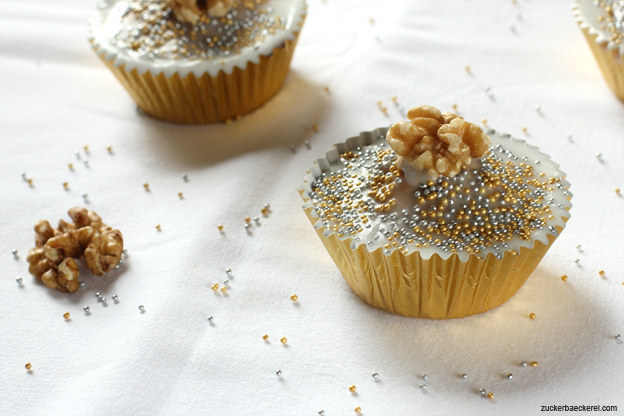
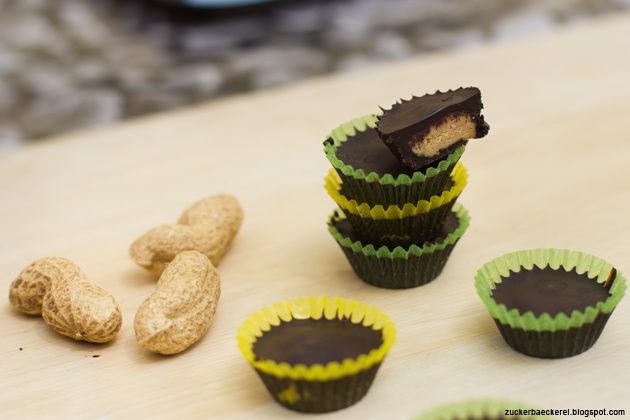
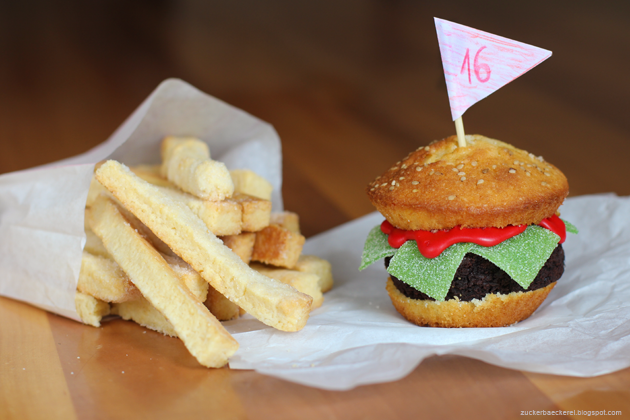
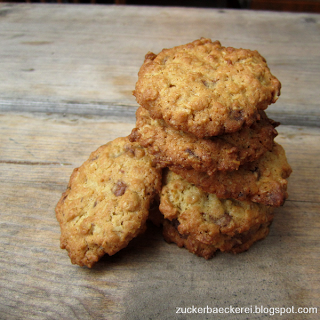
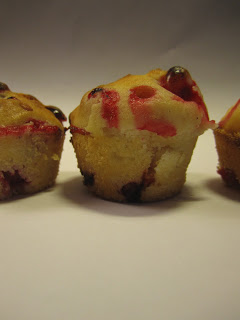
- 2022: Marillen-Cornbread (glutenfrei)
- 2021: Schoko-Marillen-Haselnuss-Tarte
- 2020: Erdnussbutter-Miso-Cookies
- 2019: Negron – oder so ähnlich
- 2018: Eine fast vegane Dinnerparty
- 2017: Basilikum-Zitronen-Eis
- 2016: Harcha und ein marokkanisches Abendessen mit Freund_innen
- 2015: Kokos-Ingwer-Kuchen mit Orangensirup
- 2014: Goldene Walnussmuffins
- 2013: Reese’s Cups
- 2012: Süßes Fastfood
- 2011: Haferflockencookies
- 2010: Johannisbeermuffins

 Hi, ich bin Jana. Seit 2009 veröffentliche ich hier wöchentlich Rezepte, Reiseberichte, Restaurantempfehlungen (meistens in Wien), Linktipps und alles, was ich sonst noch spannend finde. Ich arbeite als Podcastproduzentin und freie Kulinarikjournalistin. Lies mehr über mich und die Zuckerbäckerei auf der
Hi, ich bin Jana. Seit 2009 veröffentliche ich hier wöchentlich Rezepte, Reiseberichte, Restaurantempfehlungen (meistens in Wien), Linktipps und alles, was ich sonst noch spannend finde. Ich arbeite als Podcastproduzentin und freie Kulinarikjournalistin. Lies mehr über mich und die Zuckerbäckerei auf der 

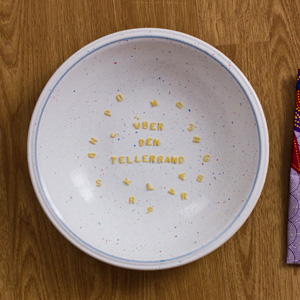 Über den Tellerrand
Über den Tellerrand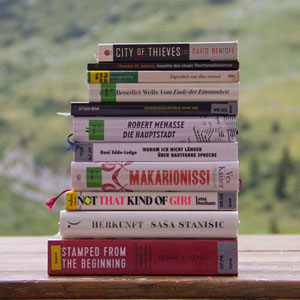 Bücher
Bücher Zuckersüß
Zuckersüß